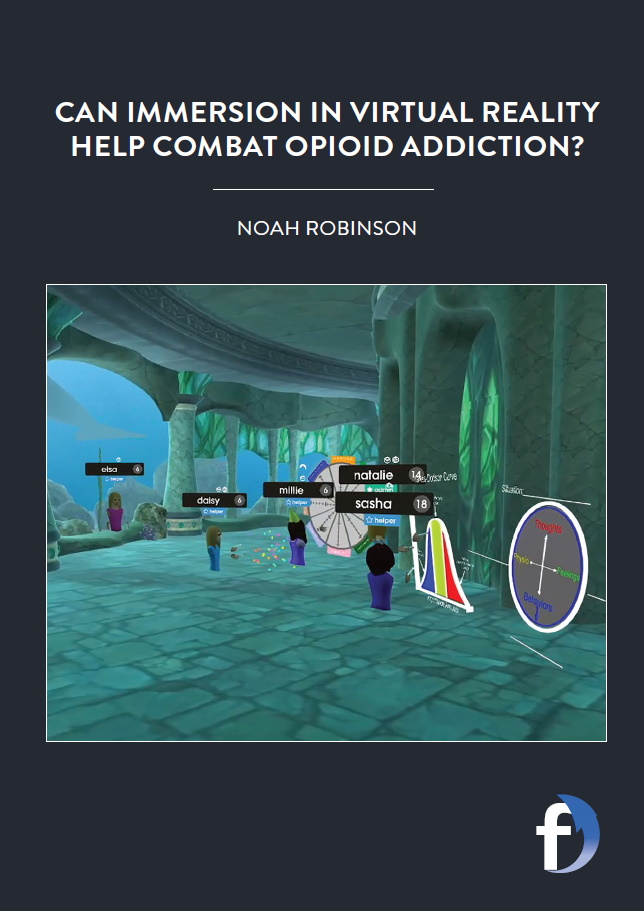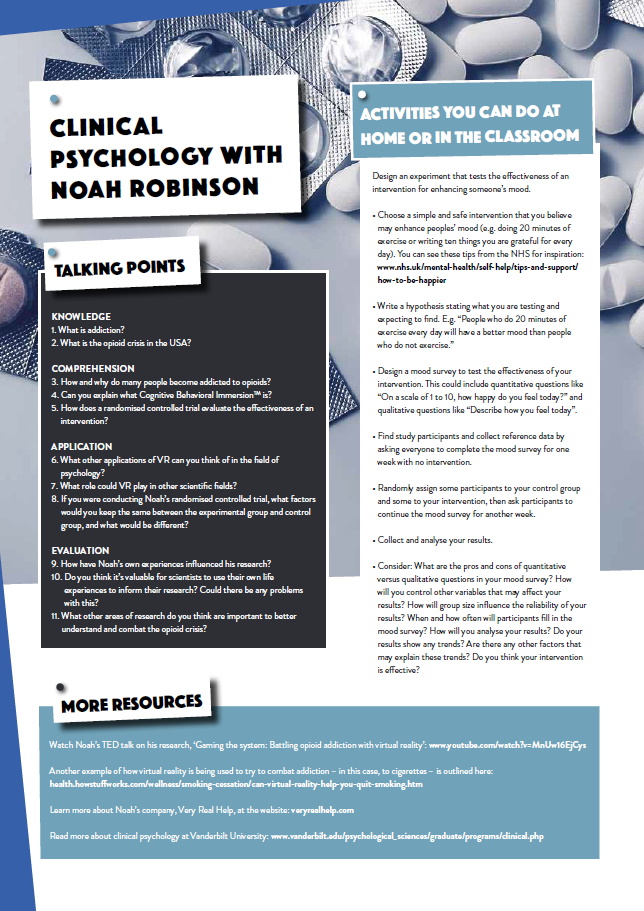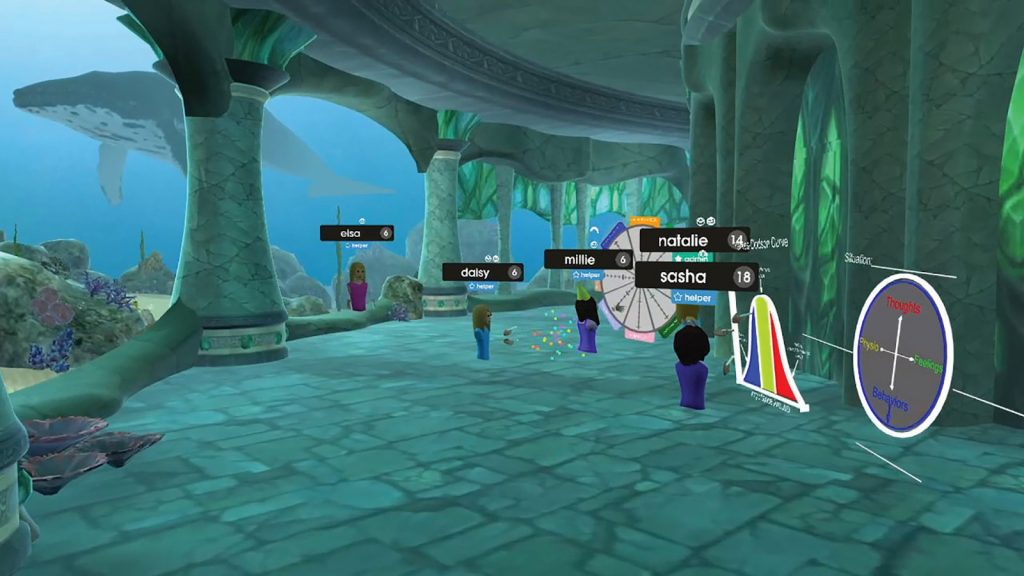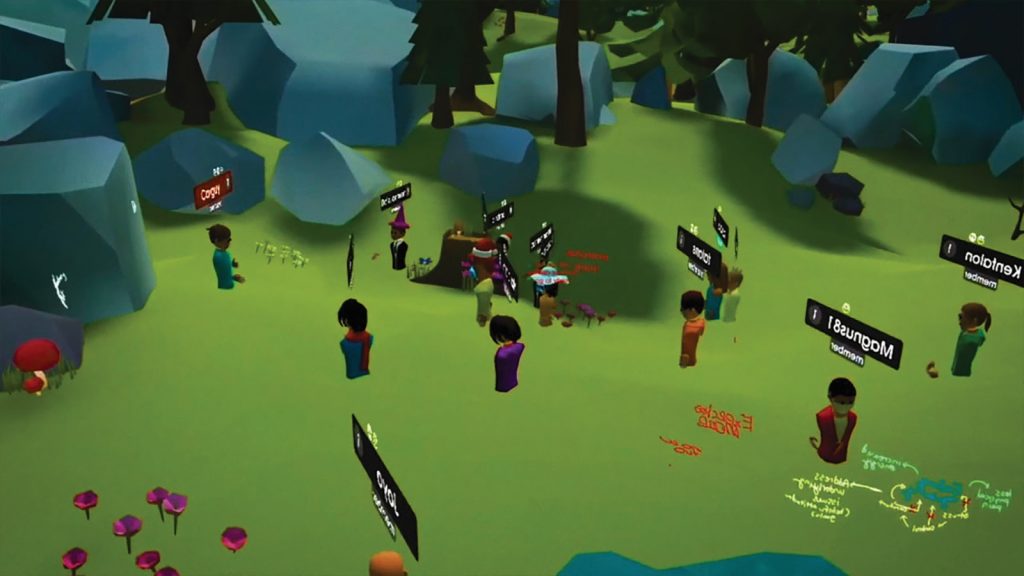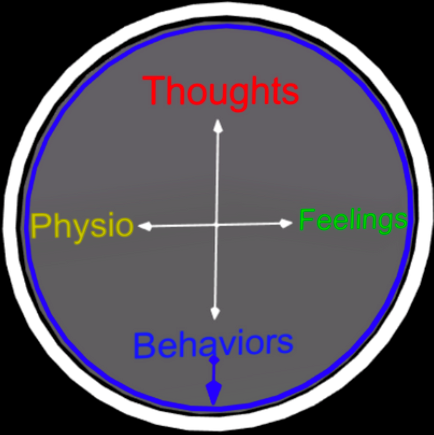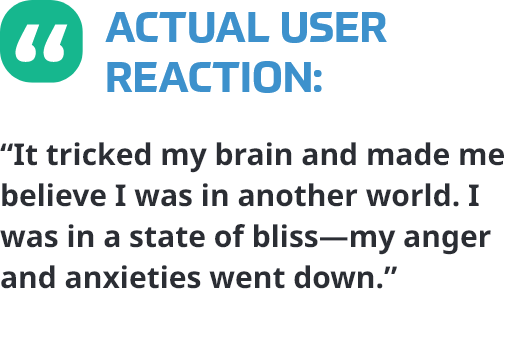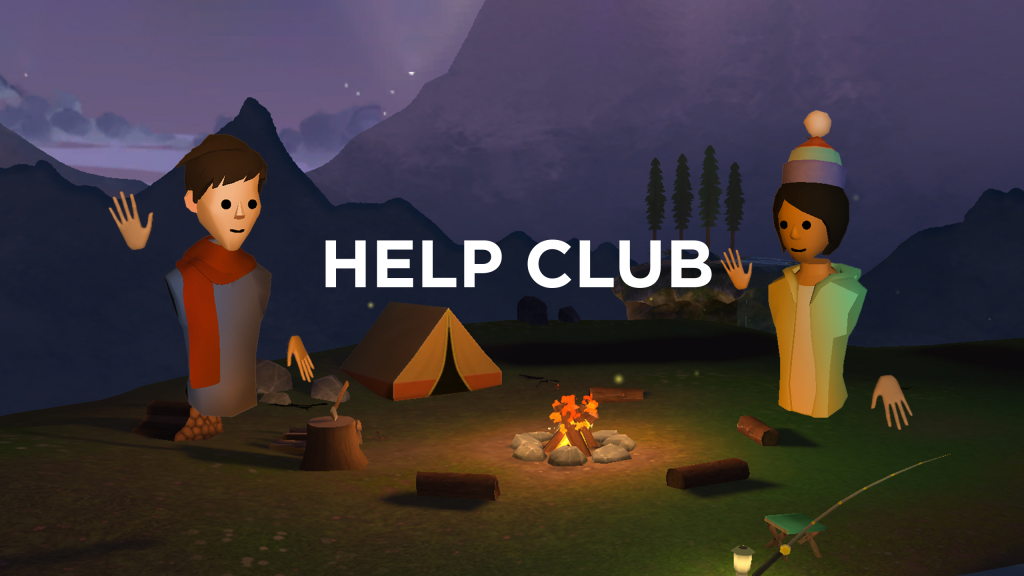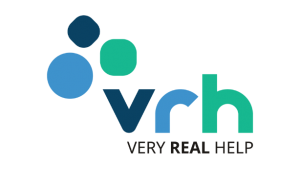Can immersion in virtual reality help combat opioid addiction?
Opioid addiction is a crisis in the USA, where tens of thousands of people die from opioid-related overdoses every year. Noah Robinson, a clinical psychology PhD candidate at Vanderbilt University in the USA, is investigating how cognitive behavioural therapy techniques can be delivered through virtual reality environments, by non-professional coaches, to help people overcome their addiction to opioids
TALK LIKE A CLINICAL PSYCHOLOGIST
ADDICTION – dependency on a substance (e.g. a drug) that results in negative consequences for the user and withdrawal if they try to stop. People may also be dependent on a behaviour (e.g. playing video games or gambling)
COGNITIVE BEHAVIOURAL THERAPY – a type of psychological therapy focusing on how people’s thoughts, emotions, behaviours and body are connected to one another within their environment
OPIOIDS – a group of drugs including prescription painkillers, such as morphine, and illegal drugs, such as heroin
OVERDOSE – when too much of a drug is taken at one time, either accidentally or intentionally, potentially causing death
RANDOMISED CONTROLLED TRIAL – a type of scientific study, commonly used in medical or clinical science, to test the effectiveness of an intervention
VIRTUAL REALITY (VR) – a computer simulation of a 3D environment that a person can interact with
Tens of thousands of people die from opioid-related overdoses every year in the USA. They may misuse prescription medications or take illegal opioids such as heroin. Opioids are highly addictive, so once someone starts taking them, it is very hard to stop. Noah Robinson, a PhD candidate at Vanderbilt University in the USA, believes that virtual reality (VR) may have the power to help those who are affected. Not only is Noah investigating how VR can combat opioid addiction, but he has also founded his own company, Very Real Help, to enable him to put his research into practice.
HOW DOES ADDICTION BEGIN?
Many prescription painkillers contain opioids. Doctors prescribe medicines such as morphine or codeine to patients to reduce their physical pain. But the addictive nature of opioids means that patients may become dependent on their medication, resulting in cravings for the substance and withdrawal symptoms when they stop taking them. This may be because the opioids are not only removing the patient’s physical pain, but also their psychological pain. “This means that the relief the patient is experiencing becomes very enticing,” explains Noah, “which is when dependency on the opioid starts to occur. Then when the painkiller prescription runs out, some people switch to heroin. Painkillers are very expensive, but heroin is a lot cheaper.”
Noah has first-hand experience of the impacts of dependency from his own life. As a teenager, he was dependent on an online video game, playing 80,000 hours of the game throughout his teenage years. “That’s as if I had a full-time job, 40 hours a week, for five years!” Noah describes his ‘addiction’ to the video game as a coping mechanism. When he was 13, he realised that he was gay. He worried about how the world would perceive him, which made him feel ashamed and depressed. But the video game helped him escape from his negative emotions, in the same way opioids decrease the negative emotions of substance users.
HOW CAN VIRTUAL REALITY COMBAT OPIOID ADDICTION?
Noah’s own experiences of dependency on a video game and a need to escape reality inspired his research into combating opioid addiction. “What if there was something that people could escape into, that could actually help them confront the underlying reasons of why they’re escaping in the first place?” he asked himself.
He became excited by the potential of VR technology when he first tried it, as virtual reality has the unique ability to completely replace someone’s environment with positive experiences and social connection. “I saw that VR was really powerful when I started working at an inpatient treatment centre and I brought VR headsets with me,” he says. “I started seeing huge changes in the mood of patients when they went into virtual reality. They were saying things like, ‘all my anxiety is gone’ or, ‘I don’t have any cravings’.” Noah has developed an approach he calls Cognitive Behavioral ImmersionTM, where he uses virtual reality as an immersive environment in which to deliver cognitive behavioural therapy.
THE HELP CLUB
Through his company, Very Real Help, Noah created the Help Club, a VR experience aiming to help people overcome opioid addiction. Like the video game Noah was once dependent upon, Help Club has been designed by psychologists. But unlike video games, which are designed to be as ‘addictive’ as possible, Help Club is designed so that while people are escaping into the virtual reality environment, they can learn coping strategies for their real-life problems. People join Help Club anonymously (represented as avatars in the virtual environment) and can take part in peer support sessions there, led by a trained peer coach. The coach teaches cognitive behavioural tools, which include techniques related to examining thought patterns and changing behaviours to cope with mental health problems. People can then apply these techniques in their real life when they need them.
Noah is clear that Help Club is not a replacement for rehab from a health care provider. But, he thinks that Help Club can offer affordable and accessible help for people with addiction. People can access it whenever they need to, rather than having to wait for their next therapy appointment. “If someone’s having a craving at home, they can put on a virtual reality headset, escape their own environment (which has all the cues for using substances) and go into this world of social connection, support and safety where they can talk to other people and potentially experience positive emotions,” explains Noah. Help Club can offer support at the moment it is needed most. Typically, cravings only last 15-20 minutes, but in that moment they seem really, really intense and powerful. “If someone can get through the craving, they can avoid relapse,” says Noah.
IS COGNITIVE BEHAVIORAL IMMERSIONTM EFFECTIVE?
Individual patients report that Cognitive Behavioral ImmersionTM helps them to feel better, and Noah’s early research indicates that his methods could be effective. His research involves mood surveys which patients fill out themselves and initial results suggest that the VR environment both reduces negative emotions and increases positive emotions. Most medicines only work to reduce negative emotions, so this could be a real benefit to Cognitive Behavioral ImmersionTM.
Reference
https://doi.org/10.33424/FUTURUM193
ADDICTION – dependency on a substance (e.g. a drug) that results in negative consequences for the user and withdrawal if they try to stop. People may also be dependent on a behaviour (e.g. playing video games or gambling)
COGNITIVE BEHAVIOURAL THERAPY – a type of psychological therapy focusing on how people’s thoughts, emotions, behaviours and body are connected to one another within their environment
OPIOIDS – a group of drugs including prescription painkillers, such as morphine, and illegal drugs, such as heroin
OVERDOSE – when too much of a drug is taken at one time, either accidentally or intentionally, potentially causing death
RANDOMISED CONTROLLED TRIAL – a type of scientific study, commonly used in medical or clinical science, to test the effectiveness of an intervention
VIRTUAL REALITY (VR) – a computer simulation of a 3D environment that a person can interact with
Tens of thousands of people die from opioid-related overdoses every year in the USA. They may misuse prescription medications or take illegal opioids such as heroin. Opioids are highly addictive, so once someone starts taking them, it is very hard to stop. Noah Robinson, a PhD candidate at Vanderbilt University in the USA, believes that virtual reality (VR) may have the power to help those who are affected. Not only is Noah investigating how VR can combat opioid addiction, but he has also founded his own company, Very Real Help, to enable him to put his research into practice.
HOW DOES ADDICTION BEGIN?
Many prescription painkillers contain opioids. Doctors prescribe medicines such as morphine or codeine to patients to reduce their physical pain. But the addictive nature of opioids means that patients may become dependent on their medication, resulting in cravings for the substance and withdrawal symptoms when they stop taking them. This may be because the opioids are not only removing the patient’s physical pain, but also their psychological pain. “This means that the relief the patient is experiencing becomes very enticing,” explains Noah, “which is when dependency on the opioid starts to occur. Then when the painkiller prescription runs out, some people switch to heroin. Painkillers are very expensive, but heroin is a lot cheaper.”
Noah has first-hand experience of the impacts of dependency from his own life. As a teenager, he was dependent on an online video game, playing 80,000 hours of the game throughout his teenage years. “That’s as if I had a full-time job, 40 hours a week, for five years!” Noah describes his ‘addiction’ to the video game as a coping mechanism. When he was 13, he realised that he was gay. He worried about how the world would perceive him, which made him feel ashamed and depressed. But the video game helped him escape from his negative emotions, in the same way opioids decrease the negative emotions of substance users.
HOW CAN VIRTUAL REALITY COMBAT OPIOID ADDICTION?
Noah’s own experiences of dependency on a video game and a need to escape reality inspired his research into combating opioid addiction. “What if there was something that people could escape into, that could actually help them confront the underlying reasons of why they’re escaping in the first place?” he asked himself.
He became excited by the potential of VR technology when he first tried it, as virtual reality has the unique ability to completely replace someone’s environment with positive experiences and social connection. “I saw that VR was really powerful when I started working at an inpatient treatment centre and I brought VR headsets with me,” he says. “I started seeing huge changes in the mood of patients when they went into virtual reality. They were saying things like, ‘all my anxiety is gone’ or, ‘I don’t have any cravings’.” Noah has developed an approach he calls Cognitive Behavioral ImmersionTM, where he uses virtual reality as an immersive environment in which to deliver cognitive behavioural therapy.
THE HELP CLUB
Through his company, Very Real Help, Noah created the Help Club, a VR experience aiming to help people overcome opioid addiction. Like the video game Noah was once dependent upon, Help Club has been designed by psychologists. But unlike video games, which are designed to be as ‘addictive’ as possible, Help Club is designed so that while people are escaping into the virtual reality environment, they can learn coping strategies for their real-life problems. People join Help Club anonymously (represented as avatars in the virtual environment) and can take part in peer support sessions there, led by a trained peer coach. The coach teaches cognitive behavioural tools, which include techniques related to examining thought patterns and changing behaviours to cope with mental health problems. People can then apply these techniques in their real life when they need them.
Noah is clear that Help Club is not a replacement for rehab from a health care provider. But, he thinks that Help Club can offer affordable and accessible help for people with addiction. People can access it whenever they need to, rather than having to wait for their next therapy appointment. “If someone’s having a craving at home, they can put on a virtual reality headset, escape their own environment (which has all the cues for using substances) and go into this world of social connection, support and safety where they can talk to other people and potentially experience positive emotions,” explains Noah. Help Club can offer support at the moment it is needed most. Typically, cravings only last 15-20 minutes, but in that moment they seem really, really intense and powerful. “If someone can get through the craving, they can avoid relapse,” says Noah.
IS COGNITIVE BEHAVIORAL IMMERSIONTM EFFECTIVE?
Individual patients report that Cognitive Behavioral ImmersionTM helps them to feel better, and Noah’s early research indicates that his methods could be effective. His research involves mood surveys which patients fill out themselves and initial results suggest that the VR environment both reduces negative emotions and increases positive emotions. Most medicines only work to reduce negative emotions, so this could be a real benefit to Cognitive Behavioral ImmersionTM.
However, Noah’s research is still in its early days. To scientifically evaluate whether Cognitive Behavioral ImmersionTM helps those with opioid addiction, he will run randomised control trials aiming to answer the question “Does the virtual reality help improve outcomes above and beyond standard treatment?” Noah will randomly assign some patients to receive his VR intervention, while a control group will receive standard opioid addiction treatment. By comparing the outcomes of the two randomised groups, Noah can test the effectiveness of his Cognitive Behavioral ImmersionTM.
LOOKING TO THE FUTURE
The future for Cognitive Behavioral ImmersionTM depends on the outcomes of these trials. “At the moment, we have people who are enthusiastic and excited about what we’re doing,” says Noah. “But until we do a randomised control trial, tracking outcomes under controlled experimental conditions, we can’t know that VR intervention is actually helping people. So that’s the vital next step.”
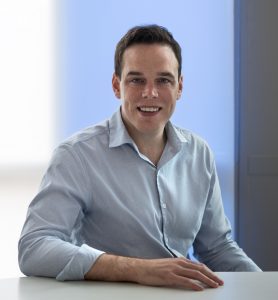 NOAH ROBINSON
NOAH ROBINSON
PhD candidate, Hollon Research Group, Vanderbilt University, USA
CEO of Very Real Help
FIELD OF RESEARCH: Clinical Psychology
RESEARCH PROJECT: Combatting the opioid crisis in the USA by combining virtual reality and cognitive behavioural therapy techniques
FUNDERS: National Science Foundation, National Institute of Health
 NOAH ROBINSON
NOAH ROBINSON
PhD candidate, Hollon Research Group, Vanderbilt University, USA
CEO of Very Real Help
FIELD OF RESEARCH: Clinical Psychology
RESEARCH PROJECT: Combatting the opioid crisis in the USA by combining virtual reality and cognitive behavioural therapy techniques
FUNDERS: National Science Foundation, National Institute of Health
ABOUT CLINICAL PSYCHOLOGY
Clinical psychology is the branch of psychology concerned with the assessment and treatment of mental health issues. Clinical psychologists deal with a range of conditions including addiction, depression, anxiety, eating disorders and learning disabilities. They work in various health and social care settings such as hospitals, clinics, social services, schools and prisons. Clinical psychologists never stop learning!
Noah says that clinical psychology is unlike most other subjects because it involves research as well as interaction with patients, which he finds very rewarding, although it comes with challenges.
WHAT ARE THE REWARDS OF CLINICAL PSYCHOLOGY RESEARCH?
Noah thinks that being involved in both research and patient care is fascinating and helps to build a broad set of skills. The research part of his work has opened up opportunities to help more people than a role in patient care alone would allow. “The most rewarding thing is helping people by building an intervention,” he says. “This is the most exciting thing I’ve ever done in my life!”
AND WHAT ARE THE CHALLENGES?
Any field of research comes with big challenges and ground-breaking findings are not guaranteed – research is often characterised by incremental progress rather than pioneering work. Noah says psychology research presents its own particular challenges because lots of the concepts are difficult to measure. “They’re all very abstract,” he says. “What is emotion? What are thoughts? As my undergraduate professor said, ‘research in psychology is like trying to measure the weight of smoke’!”
Noah has the additional challenge of running a company at the same time as completing a PhD. “I’ve had to learn how to create a business and how to do my research at the same time,” he says. “But the business is enabling me to do my research and the research is enabling the business to exist.”
Noah believes collaborations between industry and research are really important for developing new psychology interventions. In the USA, you need a company (often a pharmaceutical company, but in this case a technology company) to deliver an intervention to people.
WHAT WILL CLINICAL PSYCHOLOGY LOOK LIKE IN THE FUTURE?
Human interaction will always be really important in clinical psychology, but the next generation of clinical psychologists will need to be technology-literate too. “Technology and artificial intelligence are going to become an increasingly important part of how interventions are delivered,” Noah predicts. “It will be super valuable to have programming skills, and computer science is going to be important in psychology.” Psychologists like Noah are increasingly using VR to deliver treatments and to conduct research because virtual environments allow them to carefully control their experiments.
EXPLORE A CAREER IN CLINICAL PSYCHOLOGY
• Noah recommends getting exposure to both research (it does not have to be psychology research) and patient interaction (e.g. volunteering at a clinic) to see if you like both aspects of clinical psychology.
• Vanderbilt University (www.vanderbilt.edu/psychological_sciences), where Noah studies, has volunteering opportunities for people aged 18+ to learn clinical psychology skills in the lab.
• Help Club also has volunteer opportunities for anyone aged 18+ who is interested in becoming a coach. You can contact [email protected] if you are interested.
• In the USA, guidance on how to find a psychology internship can be found at: www.psychology.org/resources/how-to-find-an-internship and psychology students can be matched to an internship here: www.natmatch.com/psychint
• Technology will likely be a big part of the future of clinical psychology. Noah advocates learning how to build VR environments using Unity (learn.unity.com). “It’s really fun – you can build worlds, put on the VR headset and go into the world that you just built.”
• Salaries vary, but the careers website www.indeed.com reports that the average salary for a clinical psychologist in the USA is nearly $100,000.
PATHWAY FROM SCHOOL TO CLINICAL PSYCHOLOGY
• You will typically need at least one science subject (e.g. psychology, biology, chemistry, computer science) or maths to be eligible for a psychology degree.
• With a degree in psychology, you can then specialise in clinical psychology at postgraduate level.
• To work as a professional clinical psychologist, it is important that your degrees are accredited i.e. approved by a national organisation like the American Psychological Association in the USA. It is worth researching career pathways in the country you want to work in, because requirements can vary between places.
HOW DID NOAH BECOME A CLINICAL PSYCHOLOGIST?
WHAT WERE YOUR INTERESTS WHEN YOU WERE YOUNGER?
I loved reading fantasy books, sailing and playing music (trumpet and trombone). And playing video games, obviously, was a big thing!
WHAT INSPIRED YOU TO BECOME SCIENTIST?
I’ve always been really curious. In elementary school I was limited to two questions a day, because I asked too many questions! I was always interested in psychology and I got really excited when I started doing research and realised its potential to help other people.
WHAT ATTRIBUTES HAVE MADE YOU SUCCESSFUL AS A SCIENTIST?
I think curiosity is important. Humility – understanding that we don’t know everything. And then a willingness to push boundaries.
WHAT DO YOU ENJOY OUTSIDE OF WORK?
I love sailing, reading and playing music, so basically the same things as when I was younger. I do still play video games occasionally. But now that I am not escaping from an underlying problem, I play in more moderation than as a teenager.
WHAT ARE YOUR PROUDEST CAREER ACHIEVEMENTS SO FAR?
Getting a grant, becoming a PhD candidate, and starting a company while doing my PhD (which many people advised me not to do!). It’s definitely been the hardest thing I’ve ever done in my life.
YOU ARE CURRENTLY COMPLETING YOUR PHD – WHAT DO YOU HOPE ARE THE NEXT STEPS FOR YOUR CAREER?
I’m hoping to build what we’re doing into a clinical research platform. I hope to do a career’s-worth of research to understand how we can build scalable, affordable interventions and measure their efficacy within virtual environments.
Playing video games is not a problem, but like most other things it is important to do it in moderation. If you are worried that your gaming is excessive, try following Noah’s advice:
“If you have a dependency on gaming, it’s important to explore other components of your life,” he says. “I believe that excessive gaming is a symptom of an underlying problem. Some questions to explore include: Why are you playing video games? What might be missing in your life (e.g., social interaction outside of the game)? Are you avoiding or escaping something negative in the real world, as I was?”
Once the underlying issue can be identified, then healthy coping strategies can be explored that are alternatives to gaming.
If you want to continue gaming but cut down the time you spend on it, Noah suggests thinking about what you want to achieve in the game, rather than setting time limits. “Instead of trying to restrict yourself by thinking ‘I’ll only play for one hour today’, set goals such as ‘I’ll complete two raids with my clan’,” he advises.
NOAH’S TOP TIPS
01 Stick with your passion, and go with what your gut tells you, even when your approach seems unconventional.
02 Be willing to try something new and ignore those who discourage you – it’s often unconventional approaches that make a huge impact on the world!
Do you have a question for Noah?
Write it in the comments box below and Noah will get back to you. (Remember, researchers are very busy people, so you may have to wait a few days.)

